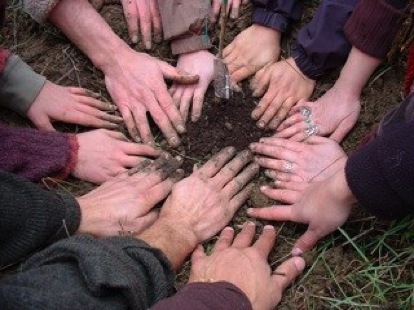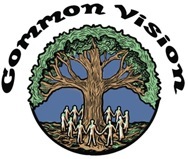








Home | About Us | Contact Us | Store

2008, Living Mandala
creative services by: 360 Degrees
Including
COMMUNITY & ECOVILLAGE DESIGN
DESIGN TOOLS & PRINCIPLES
WATER HARVESTING TECHNOLOGIES
FOOD FOREST GARDENING
NATURE CONNECTION & INDIGENOUS WISDOM
ECO-BUILDING & APPROPRIATE TECHNOLOGY
SUSTAINABLE ECONOMICS
SOCIAL JUSTICE & COMMUNITY ORGANIZING
URBAN PERMACULTURE & VILLAGE DESIGN
HANDS-ON EXPERIENTIAL LEARNING
INNER ECOLOGY
& MUCH MORE
In Association With
Green Friends
M.A Center
Common Vision
Urban Permaculture Guild
Facilitators & Instructors
Kat Steele
Jay Ma
Max Meyers
Michael Presley
Sage Mata
Kevin Bayuk
John Valenzuela
Tim Forbes
Jeanette Acosta
Starhawk
Trathen Heckman
Additional Guest Instructors to be Announced Soon
(Average of 1 Guest Instructor per day!)
Course Inspiration
In response to many inquiries from individuals interested in taking a Permaculture Design Certification Course, but who are not able to take two-weeks off from their lives, jobs, and family responsibilities to attend a residential intensive course, we are excited to offer this weekend Permaculture Design Certification Course in conjunction with Green Friends at the beautiful site of the M.A. Center in the East San Francisco Bay Area - U.S. headquarters of international humanitarian & India Saint - Amma. The beautiful 180 acre grounds of the M.A. Center are becoming a demonstration & educational hub of leading permaculture, holistic management, and regenerative design practices.
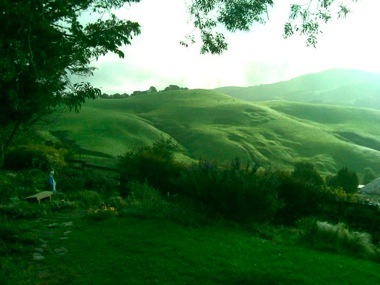
Course Description
Permaculture is a holistic design philosophy described as the art and science of creating community ecosystems in which plants, animals, human beings, and all forms of ecological diversity interact to produce a prolific, ecologically-sound, and regenerative system that can support itself and life indefinitely. Learn the art and science of Permaculture based as we make our way through the curriculum over 7 weekends from March 26 - May 8th, taught and facilitated by a diversity of exceptional instructors from the Bay Area Permaculture Teachers Guild. In addition to the standard permaculture design course curriculum based on Mollison and Holmgren ideas published in The Permaculture Designer’s Manual, we recognize permaculture as an expanding, holistic design philosophy being applied to an ever-growing landscape of diverse fields and skill sets including business, government, economics, group process, social systems, inner work, and more. Accordingly, this permaculture design course will include & integrate additional content and activities such as nature awareness, indigenous wisdom, organizational design, financial permaculture, inner ecology, group process, natural building, hands-on activities, and more here at this amazing demonstration site for permaculture practices in the Bay Area. For a more more detailed description of course contents, dates, and instructors see below.
Course Dates & Details
The course will occur over a period of seven weekends on Sundays and select Saturdays from March 26 - May 8th. Participants can sign up for individual days or for the entire course. Participants who successfully complete the entire course will receive a Permaculture Design Certificate.
Day Schedule:
Classes will be held from 9:00 am to 6:00 p.m. Lunch will be provided by the M.A Center on Sundays, and a potluck lunch on Saturday afternoons.
Dates & General Day Topics: (subject to change)
Weekend 1: March 26- 27:
Day 1 – March 26: Permaculture Overview, Ethics & Principles
Day 2 – March 27: Observation, Nature Connection, & Patterns in Nature, Zones & Sectors
Weekend 2: April 2-3:
Day 3 – April 2: Reading the Landscape, Geology, Weather, Site Analysis, Mapping
- Special Guest: Michael Presley
Day 4 – April 3: Ecology, Plants, Trees, Forests, & Agroforestry
- Special Guest: John Valenzuela
Weekend 3: April 9-10:
Day 5 - April 9: Design Process, Group Facilitation, Health, Nutrition, & Permaculture in the Kitchen
- Special Guest: Jay Holocek
Day 6 – April 10: Water on the Landscape, Rainwater Catchment, Earthworks, Ponds, & Aquaculture
- Special Guest: Max Meyers
Weekend 4: April 16-17
Day 7 – April 16: Soil, Soil Food Web, Holistic Management, & Animals in the System
- Special Guest - Michael Flynn
Day 8 - April 17: Climate, Microclimate, Sacred Geometry, Built Structures, & Natural Building
- Special Guests: Tim Forbes & Jeanette Acosta
Weekend 5: April 23-24
Day 9 - April 23: Earth Day - Day-Off
Day 10 - April 24: Social Permaculture & Community Design
- Special Guest - Starhawk
Weekend 6: April 30 - May 1
Day 11 – April 30: Bioremediation, Appropriate Technology, Renewable Energy, Mushrooms & Mycoremediation
- Special Guest - Max Meyers
Day 12 – May 1: Invisible Structures, Financial Permaculture, & Urban Strategies
- Special Guest - Kevin Bayuk
Weekend 7: May 8th:
Day 13 – May 8 - Design Presentations, Certificates, & Celebration!
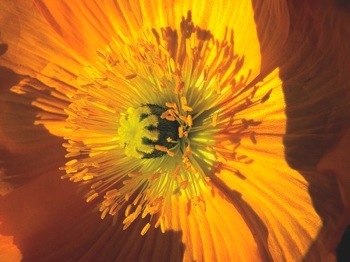
Topics to Include:
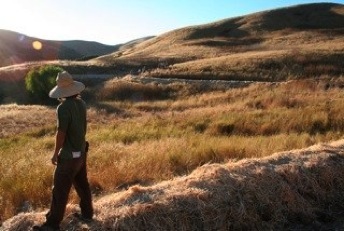
Certification Applicability
Participants who successfully complete the course will receive a Permaculture Design Certificate. Design Certification is applicable towards Gaia University Degree Programs.
7 Weekend Permaculture Design Certification Course
Whole Systems Sustainability for Creating Human Habitats in Harmony with Nature
March 26 - May 8, 2011
Saturdays & Sundays
M.A. Center - Castro Valley, California
Sign up for select days or the whole course
Tuition & Registration
Course Tuition is $1008 U.S. dollars, which includes instruction, as well as a delicious lunch provided by the M.A Center on Saturdays and a potluck lunch on Sundays. Participants who successfully complete the course will receive a Permaculture Design Certificate.
Promotional Specials
Attend the first weekend of the course: Introduction to Permaculture Weekend Workshop for only $75!
Special “Scraping By” price for full Design Course - $875.
Scholarships & Worktrade
Limited Scholarships and worktrade opportunities are available. For more information please email: education@livingmandala.com
Introduction to Permaculture Weekend Workshop - March 26-27
Join us for the first weekend of this course - open to the general public as an Introduction to Permaculture Weekend Workshop. Topics & Activities include Permaculture Overview, Ethics, Design Principles, Nature Connection, Observation, Patterns in Nature, Core Routines, Bird Language, Site Analysis, & More. Tuition for the Introduction to Permaculture Weekend Workshop is $95, which includes lunch. Fees can be applied towards tuition for the entire design course, should you choose to continue. For more information about the Introduction to Permaculture Weekend Workshop click here.
Select Weekends & Day Workshops
Sign up for the entire course, select weekends, or individual days. Select Weekends are $125, and day workshops are $65.
For a tentative schedule of select day workshops, see the schedule on the right hand column below.
Meals
Lunch will be provided by the M.A. Center on Saturdays. Potluck lunch on Sundays.
Lodging & Transportation
Participants are responsible for their lodging and travel arrangements. Lodging is not available at the M.A Center except to members of the ashram community with limited space availability. Room costs in San Ramon or Castro Valley range form $40/night to $120/night. We will send you a list of local hotels and online hotel booking options upon request. We will also assist in coordinating carpools with participants coming from different parts of the S.F. Bay Area.
Refund Policy
Cancellations up to 2 weeks before the course on will be refunded, minus a $75 processing fee. No refunds will be given after March 12th.
Site Details - M.A. Center
M.A. Center is the U.S. headquarters of international humanitarian & India Saint - Amma. www.embracingtheworld.org. The beautiful 180 acre grounds of the M.A. Center are becoming a demonstration & educational hub of leading permaculture, holistic management, and regenerative design practices.
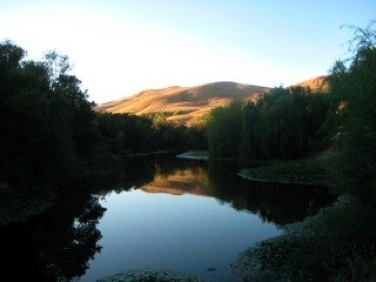
Site Projects Include
-
•1,000 tree holistic food forest
-
•Dynamic watershed restoration
-
•Broadacre land contouring & water infiltration
-
•Keyline patterning & ploughing
-
•Native reforestation & agroforestry
-
•Holistically managed grazing
-
•Soil food web management
-
•Solar energy
-
•Community garden & orchards
-
•Sustainability & spirituality programs
Keyline Plowing in the M.A Center Orchard
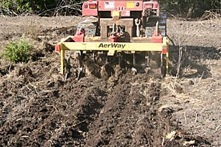
About GreenFriends
GreenFriends is a global grassroots environmental movement that promotes environmental awareness and participation at the individual and community levels in activities aimed at preserving our precious environment. GreenFriends’ baseline philosophy is that we should strive to preserve and protect our environment because not only does nature provide us with resources we need to sustain ourselves, but she also sustains all life forms on earth. GreenFriends advocates that each one of us strives to reawaken our awareness of unity with all of creation, and cultivate an attitude of love and reverence towards nature. Developing love for nature will lead to a change in our attitudes, helping us work together towards restoring the harmony between humanity and nature that has existed throughout the ages. For More information visit: http://greenfriends.org
GreenFriends: A Global Environmental Movement
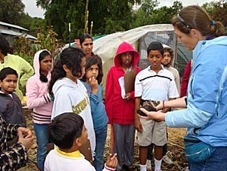
GreenFriends Projects
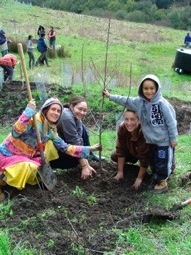
What is Permaculture?
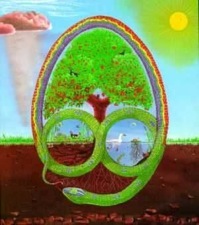
Contact
For questions and more information regarding the course
e-mail: education@livingmandala.com or
call: (707) 634-1461
Permaculture Overview
Ethics & Design Principles
Learning Affirmations
Observation
Nature Connection
Core Routines
Patterns in Nature
Bird Language
Site Analysis
Maps & Mapping
Zones &Sectors
Water on the Landscape
Regenerative Earthworks
Swales & Ponds
Keyline Design
Carbon Farming
Rainwater Catchment
Dryland Strategies
Aquaculture
Aquaponics
Design Process
Group Facilitation
Design Methods
Urban Strategies
Open Space Technology
Village Design
Alternative Economics
Green Business
Holocracy
Cultural Mentoring
Eco-Social Activism
Invisible Structures
Urban Permaculture
Hands-On Activities
Inner Ecology


Instructors & Facilitators
Kat Steele
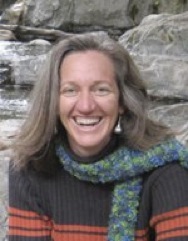
Lead Instructor & Facilitator
Jay Ma
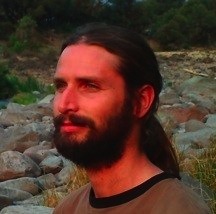
Lead Instructor & Facilitator
Max Meyers
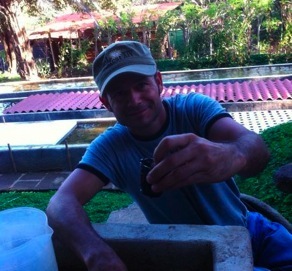
Support Instructor
Kevin Bayuk
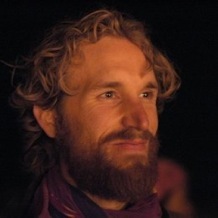
Guest Instructor
John Valenzuela
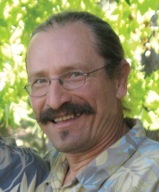
Guest Instructor
Saga Mata
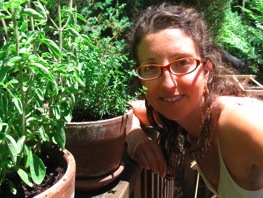
Sage has led natural building projects in Vancouver Island and various projects in CA – with her newest passion in building cob ovens! She worked as a natural building site leader at O.U.R Ecovillage (www.ourecovillage.org) and co-manager of the bountiful gardens at GingerHill farm/retreat center on the Big Island of Hawai’i (www.gingerhillfarm.com). Sage has worked for several organizations, such as the Homeless Garden Project (www.homelessgardenproject.org) and the Garden Path Project of Berkeley Youth Alternatives (www.byaonline.org/heat). Sage is also passionate about our inner ecology and about relationships in our communities – and is a practitioner and and facilitator of Compassionate Communication, World Cafes, Kriya Yoga, and Holistic Nutrition. Sage is a Programs Facilitator for Living Mandala and has been organizing, facilitating and teaching Permaculture design courses, natural building workshops, and food forest gardening workshops since 2004. Sage also currently does regenerative landscape and natural building consulting in Sonoma County, CA.
Support & Guest Instructor
Starhawk

Starhawk is a veteran of progressive movements, from anti-war to anti-nukes, and is deeply committed to bringing the techniques and creative power of spirituality to political activism. Her work in progressive movements spans over 30 years. She has organized, trained protesters, and been on the front lines of antinuclear actions at Diablo Canyon, Livermore Weapons Lab, Vandenberg Air Force Base, and the Nevada Test Site, among others. She traveled to Nicaragua with Witness for Peace in 1984 and made two trips to El Salvador to give ongoing support for sustainability programs. She continues to be a witness for peace on the front lines of the Palestine/Israel war, working with Palestinian and Israeli peace activists. A main focus for the last several years has been the global justice movement; Starhawk has taken part in many of the major actions, including those in Seattle, Washington DC, Quebec City, Genoa, New York City, Cancun, Mexico, and Miami. She co-founded RANT: Root Activists' Network of Trainers, and teaches non-violent direct action trainings for groups throughout the US, Canada, Mexico, Europe, Palestine, and South America. She is active in the revived American peace movement, and works with Code Pink. Starhawk also works on countless environmental and land use issues, and is a founder and active member of the Cazadero Hills Land Use Council in western Sonoma County.
Starhawk consulted on and contributed to a trio of popular films, the Women's Spirituality series (directed by Donna Read).
Starhawk and Donna Read formed their own film company, Belili Productions. Their first release is "Signs Out of Time" (2004), a documentary on the life of archaeologist Marija Gimbutas, the scholar whose discoveries sparked the Goddess movement. Watch Starhawk’s short videos on Permaculture - Tabor Tilth: Permaculture in the City, and Permaculture Principles at Work. Starhawk and Donna are at work on her next film, an Introduction to Permaculture.
Starhawk lives part-time San Francisco, in a collective house with her partner and friends, and part-time in a little hut in the woods in Cazadero, California, where she practices permaculture in her extensive gardens, and writes.
Trathen Heckman
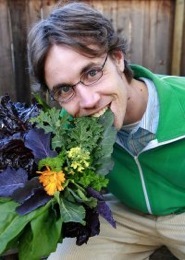
Trathen Heckman is the founding executive director of Daily Acts Organization, president of the board for Transition US, publisher of Ripples - an award-winning journal, and a backyard farmer. He is the former executive director of Green Sangha Organization and currently on the board of directors. Seeking to inspire the engagement of hearts, minds and senses, Trathen educates and works with community, business and municipal leaders to create programs, policy and models which harness the power of nature and inspired action to restore the health of our lives and communities. Trathen has given oodles of local, national and international presentations on Sustainability, Ecological Design and the power of our daily actions to renew the world. He lives in the Petaluma River Watershed where he grows food, medicine and wonder while working to compost apathy and lack.
Guest Instructor
Jay Holecek
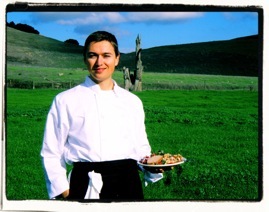
Guest Instructor
Tim Forbes
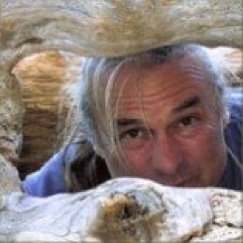
Guest Instructor
Jeanette Acosta - Sat Siri Kaur
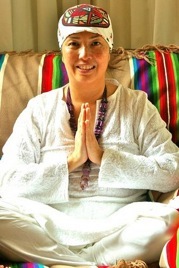
Guest Instructor
Affiliate Organizations & Sponsors
Become a sponsor of this course!
For details email: affiliates@livingmandala.com
Soil Ecology & Soil Food Web
Soil Building Strategies Compost
Sheet Mulching
Compost Teas
Animals Systems
Carbon Sequestration
Plant Guilds
Gardens
Food Forests
Sustainable Forestry
Coppicing
Plant Propagation
Pruning
Climate
Microclimate
Passive Solar Design
Natural Building
Green Building
Tropical Permaculture
Appropriate Technology
Mushrooms & Mycoremediation
Bioremediation
Humanure
Greywater
Group Decision Making
Compassionate Communication
Cooperative Legal Structures
Finance Permaculture
Land Access
Eco-Villages
Indigenous Wisdom
Design Projects
Wildcrafting
Delicious Meals Included
